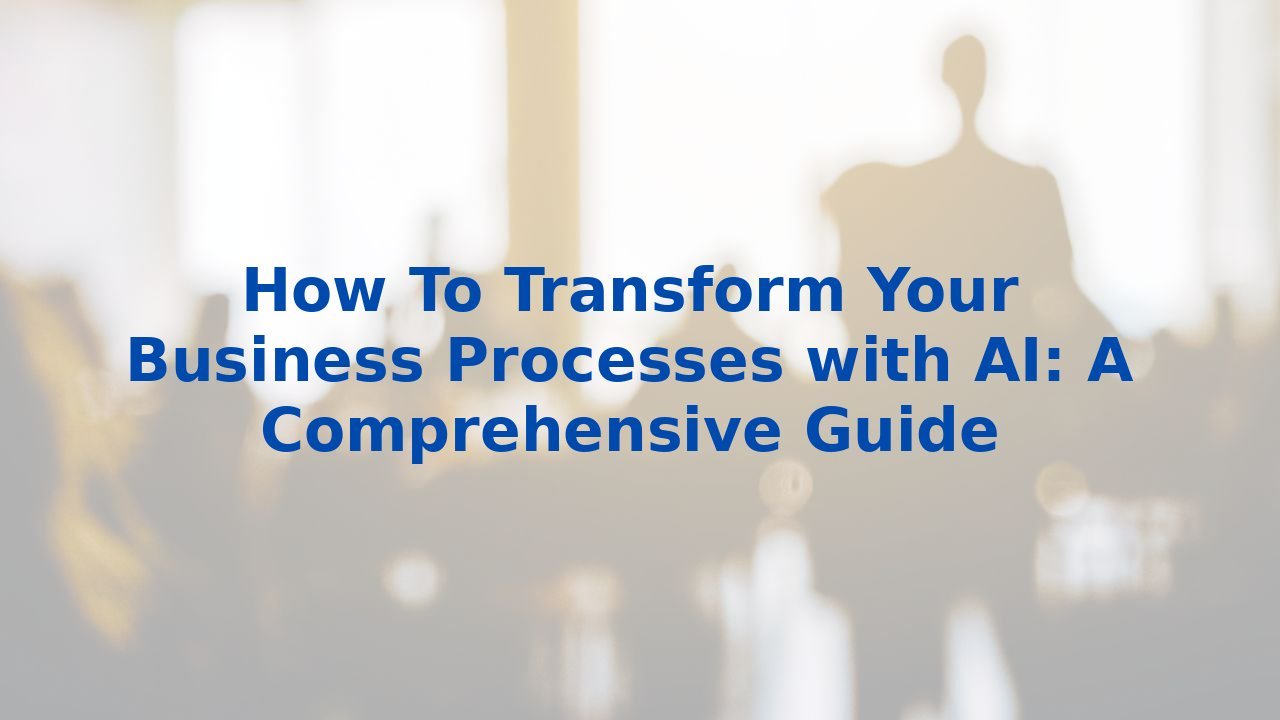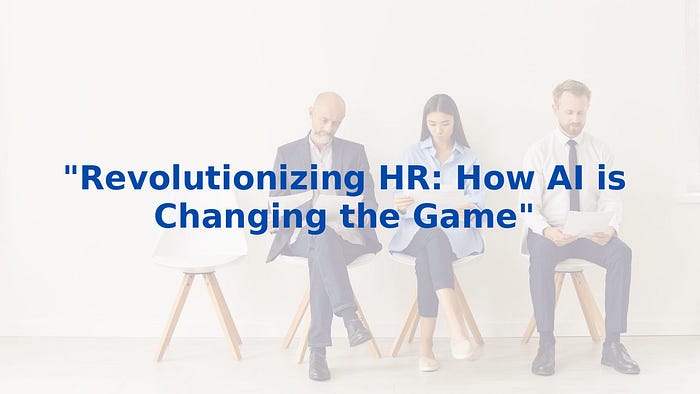How To Transform Your Business Processes with AI: A Comprehensive Guide
The Transformative Power of AI in Business Processes
As organizations transition further into the digital age, the introduction of Artificial Intelligence (AI) is no longer an option but a necessity. AI has shown incredible potential in improving business processes, making them more efficient, intuitive, and adaptable to market demand. This transformation isn’t just about technology; it's about enhancing human potential through meaningful collaboration between humans and machines.
Identifying Key Business Processes for AI Enhancement
Business processes span a variety of functions ranging from human resources to customer service, and each process serves as a building block for organizational effectiveness. By leveraging AI, companies can automate repetitive tasks, offer data-driven insights, and enhance decision-making. Here are some critical business processes ripe for AI enhancement:
1. Human Resource Management
In the realm of human resources, tasks such as recruitment, onboarding, and employee engagement can significantly benefit from AI integration. AI systems can sift through resumes more efficiently, identifying the best candidates based on predetermined criteria. Moreover, AI-driven chatbots can streamline the onboarding process by answering FAQs and guiding new hires through necessary documentation.
2. Customer Support
AI plays a crucial role in customer support, where real-time engagement is key. Intelligent chatbots help reduce wait times and ensure that customers receive immediate assistance. Natural Language Processing (NLP) enables AI to understand and respond to customer inquiries contextually, creating a seamless interaction experience that enhances customer satisfaction.
3. Sales and Marketing
AI can analyze customer behavior and personalize marketing strategies, providing insights that drive sales more effectively. Predictive analytics help sales teams identify potential leads and recommend the most effective approaches to converting them into clients. This data-driven approach results in efficient resource allocation and maximized ROI.
The Efficiency Gains of AI Implementation
When AI is implemented in these processes, organizations witness a variety of efficiency gains:
- Time Savings: Automating mundane tasks frees up employees’ time, allowing them to focus on strategic initiatives that drive growth.
- Cost-Effectiveness: Reductions in administrative costs can be achieved through the elimination of manual processes and improved operational efficiencies.
- Enhanced Decision-Making: AI provides valuable data insights that enable managers to make informed decisions quickly and effectively.
- Improved Accuracy: AI minimizes human error, ensuring data integrity and precision in decision-making processes.
Empowering Employees through AI Training
While the potential of AI is immense, its success largely depends on the people using it. Thus, training your workforce for AI is a vital investment. Offering comprehensive AI training ensures employees are equipped with the necessary skills to maximize the benefits of these technologies.
1. Bridging the Skills Gap
As AI technologies evolve, so do the skills required to navigate them. Corporate AI training programs can bridge the knowledge gap, enabling employees to embrace technological changes rather than resist them. This will ultimately lead to a more innovative workforce.
2. Enhancing Job Satisfaction
Investing in training fosters a sense of value among employees. When individuals feel that they are equipped with the latest skills, their job satisfaction increases. This encourages a culture of learning and adaptability, making organizations more competitive.
3. Promoting Collaboration between Humans and AI
Effective training programs prepare staff to understand how to use AI as a collaborative tool rather than a replacement. By emphasizing the complementary roles of humans and machines, organizations cultivate a harmonious work environment where innovation thrives.
Conclusion
The integration of AI into business processes isn’t just a trend; it is a transformative approach that holds the potential to redefine how organizations operate. By identifying key areas for AI implementation and focusing on training employees, businesses not only enhance productivity but also create a workforce ready to innovate in an ever-evolving landscape. The future of work is here, and it is intelligent, efficient, and collaborative.
For more insights on AI training and how to equip your organization for the future, visit our AI Training Homepage.



